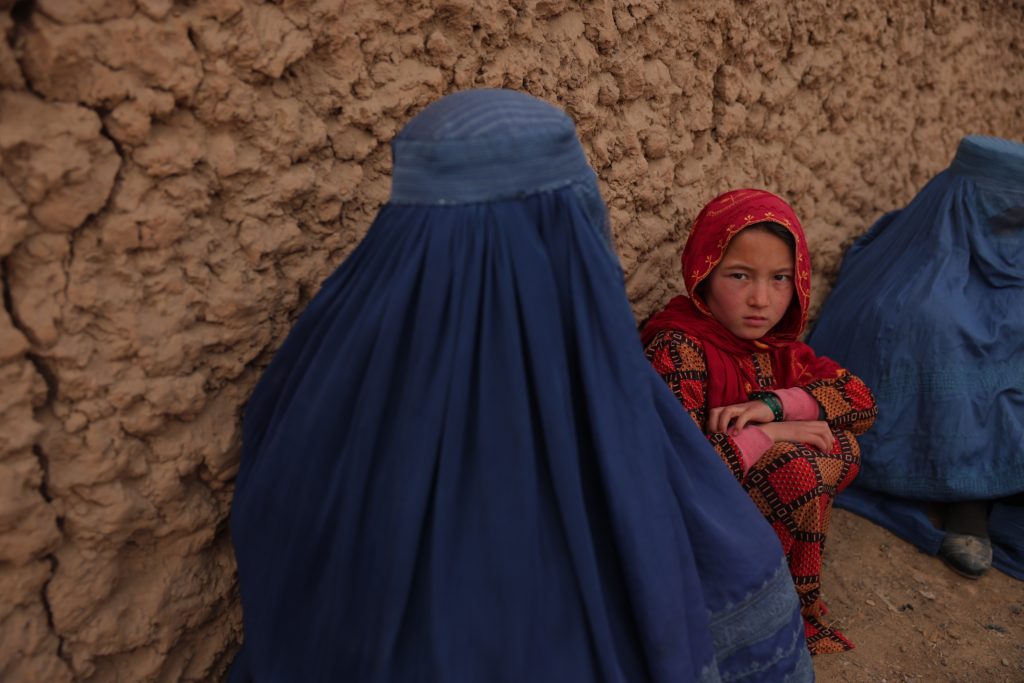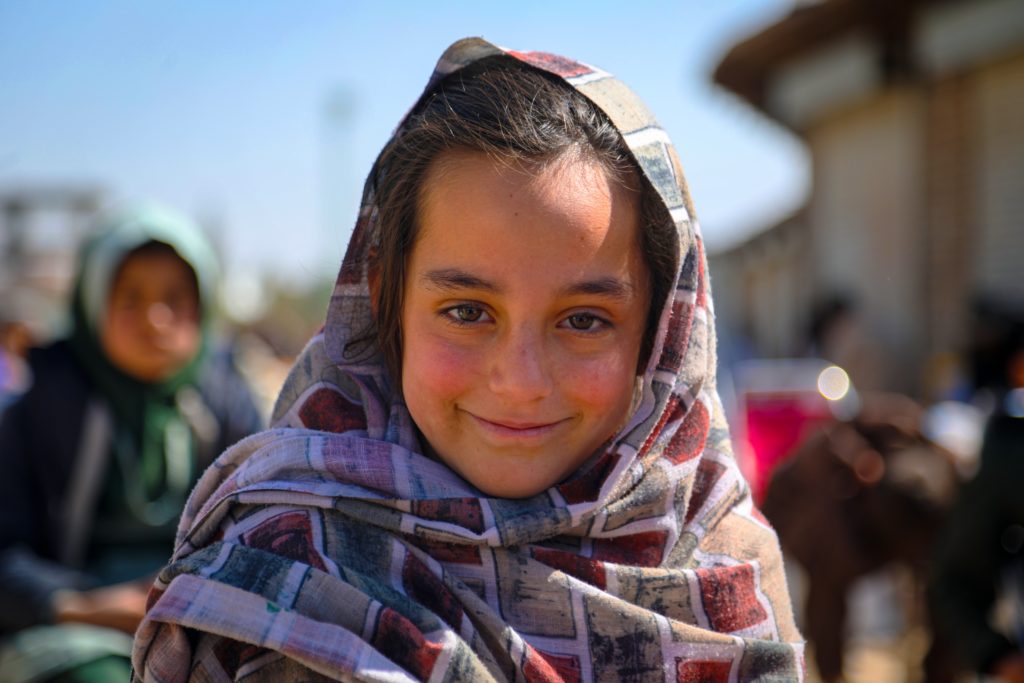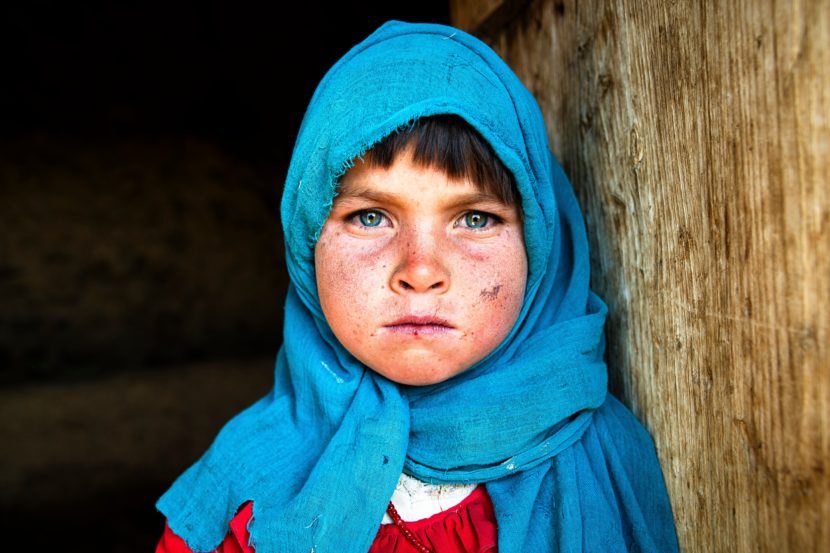In August 2021, the Taliban regained power in Afghanistan after a lightning military campaign in which they seized major cities in less than 10 days. Since then, a series of restrictive measures has been imposed, targeting girls and young women. In September 2021, they were banned from attending secondary school, followed in 2022 by exclusion from universities. Gradually, the Taliban have also restricted their right to work, their presence in public spaces, and their participation in social life.
Total ban on girls’ access to education in Afghanistan
For the third consecutive year, girls can no longer attend secondary school. As a result, this ban now affects 2.2 million girls (Russell, 2025; UN News, 2025). Since the decree adopted by the de facto authorities in March 2022, Afghanistan has become the only country in the world where women and girls are denied access to secondary and higher education (Nowrouzi, 2025).
The ban on access to education has serious consequences for Afghan girls. It represents the loss of their dreams and social life. This is the case for Zainab, 16, who has not been allowed to go to school since March 2022: “Every time I look back at my old textbooks, I burst into tears. I realise how much I miss school, my friends, and my teachers” (Coursac, 2025). No access to education also means forced marriages and pregnancies, as well as severe psychological distress (UN News, 2025).
Religious centres called “madrasas” focus their teaching on Islam and are now the only opportunity for girls and young women to access any form of education. However, since the ban on regular schools, some madrasas have diversified their teaching and now offer subjects such as science and languages. This is the case for Safia, 20, who teaches Pashto at the Al-Hadith madrasa.
The Al-Hadith madrasa addresses Fiqh, which is the Islamic framework essential to Muslim practices, but asserts that these institutions can in no way replace traditional schools. Richard Bennett, UN Special Rapporteur on human rights in Afghanistan, has shared his concerns about the restrictive education provided by madrassas (Nowrouzi, 2025).
In addition to closing schools, the Taliban have excluded Afghan women from NGOs and public sector jobs. In early September 2025, they effectively banned Afghan female staff from working at the United Nations High Commissioner for Refugees (UNHCR) (UN News, 2025).
Imposed violence and controlled bodies: girls’ health in Afghanistan
Following an announcement by the de facto authorities in March 2024, women may be flogged and stoned in public for running away, violating dress codes, or shopping without a male guardian; however, violence against girls occurs elsewhere (UN News, 2025).
First and foremost, Afghan girls are affected by forced marriage: in 2023, 28.7% of girls under the age of 18 and 9.6% of girls under the age of 15 were married (Alizada, 2024; UN Women, 2025). The most affected girls are those from disadvantaged families or regions. The economic and humanitarian crisis has plunged some families into such poverty that they have resorted to selling or considering selling their daughters (UN Women, 2025). As a result of this extreme poverty, the sale of young girls for marriage to much older men has tripled since the arrival of the Taliban (France 24, 2022).
Accordingly, the combination of the ban on education and the rise in forced marriages has led to an increase in forced pregnancies. The failure to give birth within a year of marriage exposes young women to various forms of violence. The man may seek a divorce or take a second wife, but these scenarios can also increase domestic violence.
The lack of education makes it even more difficult to raise awareness of gender-based violence (UN Women, 2025). The World Health Organization reports that 90% of Afghan women are, or have been, victims of domestic and gender-based violence (Women’s Hope International, 2025).
Safety and freedoms for girls in Afghanistan
Education and safety are now largely inaccessible to Afghan girls. These measures, exacerbated by the recent natural disaster, increase their isolation and pose a direct threat to their fundamental rights.

Daily restrictions and control of freedoms
The de facto authorities have adopted nearly 100 decrees since 2021 to restrict the mobility of girls and women in society. These decrees were intended to be repealed, but to date, they remain in effect (UN News, 2025). Since 2024, when a young woman speaks out, she is accused of moral violation by the Taliban regime, according to a law enacted that same year, entitled “Law on the Prevention of Vice and Promotion of Virtue.” The “morality inspector” is then responsible for threatening and arresting girls and women who do not comply with the code of morality, so that they can be brought before the Taliban courts (Amnesty, 2025).
Humanitarian crises and challenges to survival
Since the Taliban came to power in 2021, poverty has increased. According to the United Nations Development Programme, in January 2024, 85% of Afghans were living on less than a dollar a day, around 23.7 million people needed humanitarian aid in March 2023, and 2.9 million children were acutely malnourished in 2024 (Amnesty, 2025; UN News, 2023; UNDP, 2024).
Iran has pushed almost 450,000 Afghans out of its borders since June 2025. The Iranian government has expressed its regret and stated that Iran has limited capacity. Pakistan has also carried out the same process, and a total of 1.4 million people have been forced to return to Afghanistan (Le Monde, 2025; High Commissioner for Refugees, 2025).
Finally, a magnitude 6 earthquake struck Afghanistan on 31 August 2025, and a series of aftershocks followed. The earthquake affected 263,000 children, resulting in 1,172 deaths (HAJJ, 2025). There were 7,000 destroyed homes, landslides, and damaged communication networks, which means that living conditions will not improve before the winter (UN News, 2025).
First international recognition of gender-based crimes
On 8 July 2025, the International Criminal Court (ICC) issued two arrest warrants for two Taliban leaders, Abdul Hakim Haqqani and Haibatullah, for the persecution of women and girls based on their gender (Breitwieser-Faria, 2025). According to the ICC, the two men “ordered, incited, or solicited the crime against humanity of persecution on gender grounds,” thereby making them guilty of the aforementioned crimes.
ICC Prosecutor Karim A. A. Khan stated that it would be futile for the Taliban to invoke Sharia law as any justification for the deprivation of fundamental human rights (International Criminal Court, 2025). These arrest warrants are the first to be issued for charges of gender-based persecution and are therefore of great importance in recognising and asserting the rights of Afghan women and young girls (Breitwieser-Faria, 2025).
Signs of hope for the future of young girls in Afghanistan
Despite the seriousness of the situation in Afghanistan, young Afghan girls still hold some hope. Local associations and solidarity networks are quietly organising to maintain spaces for learning and support, often at the risk of their own safety. Several international organisations are continuing their efforts to improve the living conditions of children in Afghanistan by providing education, health, and protection for the most vulnerable.
The international community, for its part, continues to provide essential support through educational and health programmes, reminding us that girls’ rights are universal and inalienable. Finally, the recognition of gender-based crimes by international courts marks a historic step: it sends a strong signal against impunity and paves the way for better protection of girls and women.
In fact, on 6 October 2025, the United Nations Human Rights Council adopted a resolution to establish an independent investigation mechanism for Afghanistan. This represents “a crucial step forward in the fight against systematic rights violations and abuses committed in Afghanistan, particularly against women, girls, and LGBTQI+ people,” according to Sandra Epal-Ratjen, Director of International Advocacy at the International Commission of Jurists (2025).

At Humanium, we devote our daily efforts to promoting and protecting children’s rights around the world. Real and lasting change requires both global awareness and local action. By uniting, we affirm that the rights of Afghan girls, like those of all children, are universal, inalienable, and must be protected. That is why we invite you to support Humanium’s mission, whether by volunteering, making a donation, or sponsoring a child in need.
Written by Morgane Schmutz
Translated by Adrian Ordinana Salvador
Proofread by Or Salama
Bibliography:
Alizada, S. (21 février 2024). Afghanistan, l’effroyable trafic de fillettes “mises en vente” pour être mariées. Extrait du Courrier international, accessible sur https://www.courrierinternational.com/article/societe-en-afghanistan-l-effroyable-trafic-de-fillettes-mises-en-vente-pour-etre-mariees, consulté le 1er octobre 2025.
Amnesty. (1er janvier 2025). Afghanistan : la situation des droits humains Amnesty International. Extrait de Amnesty International, accessible sur https://www.amnesty.org/fr/location/asia-and-the-pacific/south-asia/afghanistan/report-afghanistan/, consulté le 1er octobre 2025.
Bidel, S. (17 septembre 2025). Afghanistan : 2,2 millions de filles privées des bancs de l’école, alerte l’UNICEF. Extrait des UN Infos, accessible sur https://news.un.org/fr/story/2025/09/1157484, consulté le 2 octobre 2025.
Breitwieser-Faria, Y. (31 juillet 2025). Afghanistan : des mandats d’arrêt contre deux chefs talibans pour crimes contre l’humanité. Extrait de The Conversation, accessible sur https://theconversation.com/afghanistan-des-mandats-darret-contre-deux-chefs-talibans-pour-crimes-contre-lhumanite-262255, consulté le 28 septembre 2025.
Cour pénale internationale. (8 juillet 2025). Situation en Afghanistan : La Chambre préliminaire II de la CPI délivrent des mandats d’arrêt contre Haibatullah Akhundzada et Abdul Hakim Haqqani. Extrait de la Cour pénale internationale, accessible sur https://www.icc-cpi.int/fr/news/situation-en-afghanistan-la-chambre-preliminaire-ii-de-la-cpi-delivrent-des-mandats-darret, consulté le 1er octobre 2025.
Coursac, I. (19 septembre 2025). Education en Afghanistan : les filles n’ont plus d’avenir. Extrait de UNICEF, accessible sur https://www.unicef.fr/article/education-en-afghanistan-un-droit-pour-toutes-les-filles/, consulté le 28 septembre 2025.
France 24. (13 octobre 2022). Mariages d’enfants en Afghanistan : le combat contre la vente de mineures. Extrait de FRANCE 24. YouTube, accessible sur https://www.youtube.com/watch?v=9FrTKH_O_DE, consulté le 28 septembre 2025.
Guedj, L. (16 août 2021). Afghanistan : 10 dates clés pour comprendre la montée en puissance des talibans. Extrait de Radio France, accessible sur https://www.radiofrance.fr/franceinter/afghanistan-10-dates-cles-pour-comprendre-la-montee-en-puissance-des-talibans-5771980, consulté le 3 octobre 2025.
HAJJ, P. (22 septembre 2025). Séismes en Afghanistan : les enfants en danger. Extrait de UNICEF, accessible sur https://www.unicef.fr/article/afghanistan-les-enfants-sont-en-danger-apres-un-tremblement-de-terre-de-magnitude-63/, consulté le 1er octobre 2025.
Haut Commissariat pour les réfugiés. (7 juillet 2025). Les besoins humanitaires augmentent alors que 1,4 million de personnes rentrent en Afghanistan. Extrait de UNHCR France, accessible sur https://www.google.com/search?q=HCR&rlz=1C5CHFA_enCH958FR958&oq=HCR+&gs_lcrp=EgZjaHJvbWUyBggAEEUYOTIQCAEQABiDARixAxjJAxiABDINCAIQABiSAxiABBiKBTIMCAMQABhDGIAEGIoFMgYIBBBFGDwyBggFEAUYQDIGCAYQRRg8MgYIBxBFGDzSAQgxMTM3ajBqN6gCALACAA&sourceid=chrome&ie=UTF-8, consulté le 1er octobre 2025.
International Commission of Jurists. (6 octobre 2025). Afghanistan: UN Human Rights Council establishment of an independent investigative mechanism is a major step towards accountability. Extrait de International Commission of Jurists, accessible sur https://www.icj.org/afghanistan-un-human-rights-council-establishment-of-an-independent-investigative-mechanism-is-a-major-step-towards-accountability/, consulté le 6 octobre 2025.
Le Monde. (7 juillet 2025). Iran : près de 450 000 Afghans ont quitté le pays depuis le 1ᵉʳ juin. Extrait de Le Monde, accessible sur https://www.lemonde.fr/international/article/2025/07/07/iran-450-000-afghans-ont-quitte-le-pays-depuis-le-1-juin_6619594_3210.html, consulté le 21 septembre 2025.
Limaye, Y. (18 août 2023). Afghanistan : cinq moments clés de la dégradation des droits des femmes. Extrait de la BBC, accessible sur https://www.bbc.com/afrique/monde-66533720, consulté le 2 octobre 2025.
Nowrouzi, M. (20 avril 2025). Afghanistan : Les madrasas, seul choix pour les jeunes filles afghanes exclues des écoles et des universités. Extrait de la BBC, accessible sur https://www.bbc.com/afrique/articles/cwyn2yk2l3jo, consulté le 1er octobre 2025.
ONU Infos. (14 mars 2023). Afghanistan : l’ONU demande plus de 5 milliards de dollars pour venir en aide au pays et à ses réfugiés. Extrait de ONU Infos, accessible sur https://news.un.org/fr/story/2023/03/1133227, consulté le 25 septembre 2025.
ONU Infos. (11 septembre 2025). Séismes en Afghanistan : l’ONU alerte sur l’urgence humanitaire avant l’hiver. Extrait de ONU Infos, accessible sur https://news.un.org/fr/story/2025/09/1157448, consulté le 2 octobre 2025.
ONU Infos. (17 septembre 2025). Afghanistan : 2,2 millions de filles privées des bancs de l’école. Extrait de ONU Infos, accessible sur https://news.un.org/fr/story/2025/09/1157484, consulté le 28 septembre 2025.
ONU Infos. (12 août 2025). Quatre ans après la prise de pouvoir par les Talibans, l’exclusion des femmes afghanes est presque totale. Extrait de ONU Infos, accessible sur https://news.un.org/fr/story/2025/08/1157282, consulté le 28 septembre 2025.
ONU Infos. (7 juillet 2025). Afghanistan : un Comité de l’ONU fustige le recours à la lapidation pour les femmes adultères. Extrait de ONU Infos, accessible sur https://news.un.org/fr/story/2025/07/1157074, consulté le 2 octobre 2025.
PNUD. (10 janvier 2024). Approximately 85 percent of Afghans live on less than one dollar a day. Extrait du Programme De Développement Des Nations Unies, accessible sur https://www.undp.org/stories/approximately-85-percent-afghans-live-less-one-dollar-day, consulté le 25 octobre 2025.
Russell, C. (21 mars 2025). 2,2 millions au total, sont privées de leur droit à l’éducation. Extrait de UNICEF, accessible sur https://www.unicef.org/fr/communiques-de-presse/rentree-scolaire-en-afghanistan-filles-privees-education, consulté le 28 septembre 2025.
UN Women. (1er janvier 2025). Gender Index 2024 AFGHANISTAN. Extrait de UN Women, accessible sur https://www.unwomen.org/sites/default/files/2025-06/gender-index-2024-afghanistan-en.pdf, consulté le 28 septembre 2025.
Women’s Hope International. (1 janvier 2025). Les femmes se renforcent à Kaboul et Scheberghan. Extrait de Women’s Hope International, accessible sur https://www.womenshope.ch/fr/nos-activites/afghanistan/les-femmes-se-renforcent-a-kaboul-et-scheberghan, consulté le 29 septembre 2025.


